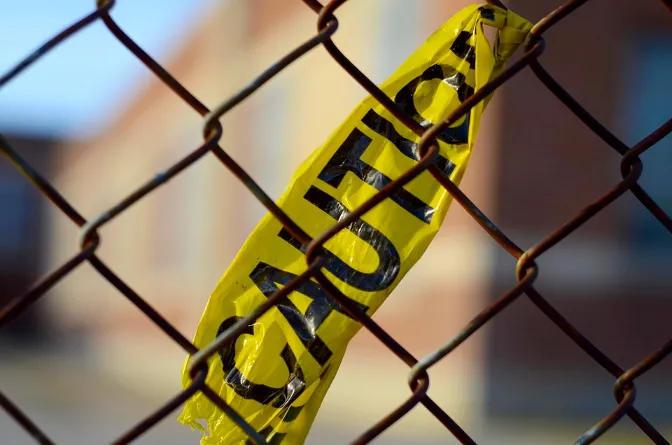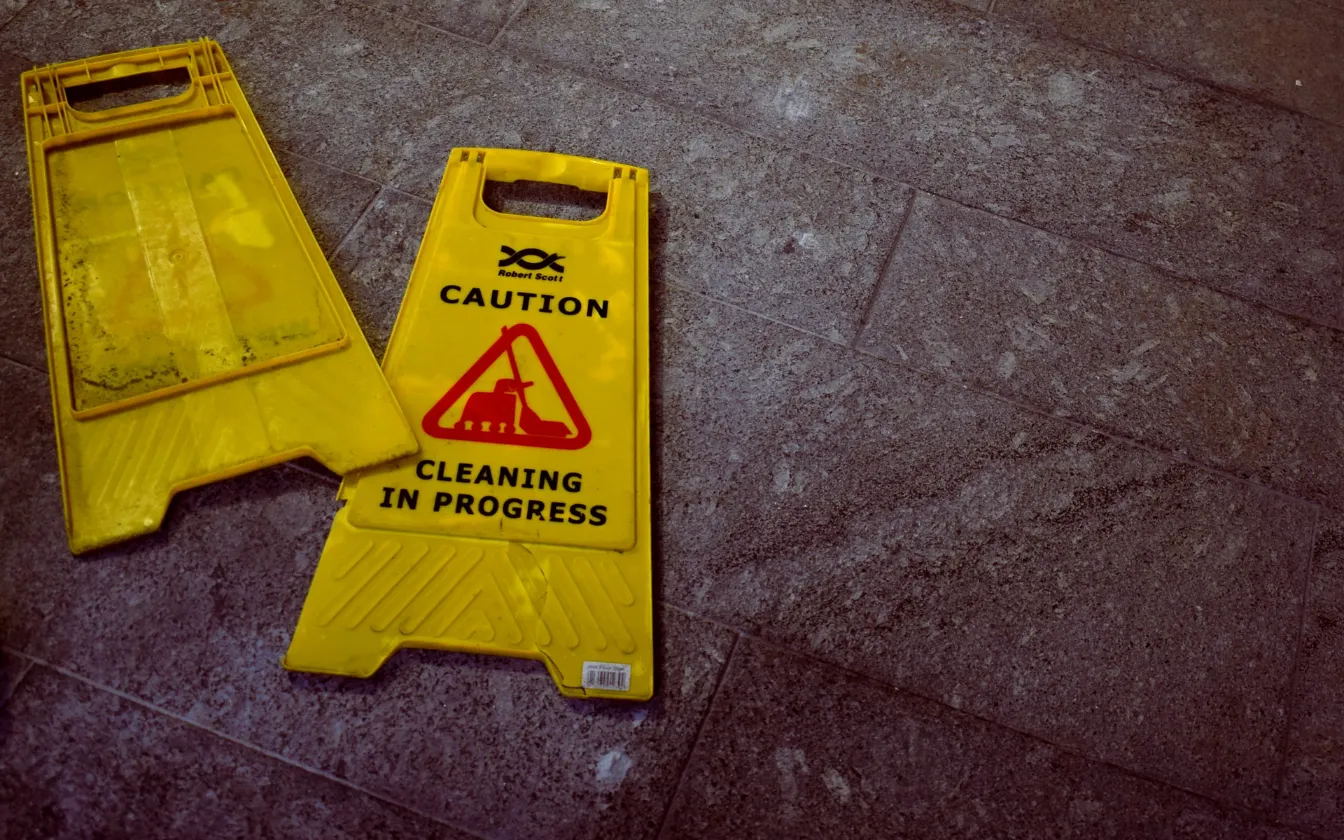
Slip and Fall Injury? Here's Why You Need a Kansas City Premises Liability Lawyer.

Slip, trip, and fall accidents are some of the most common types of personal injury lawsuits in the country. They can happen anywhere, at any time, and result in serious injuries. Broken bones from slips and falls can cost thousands in medical bills and missed time at work. According to the Centers for Disease Control and Prevention, falls resulted in 31,959 unintentional deaths in a single year. From 2007 to 2016 alone, fall death rates in the U.S. increased by 30% for older adults. Slip and fall incidents are not something the law takes lightly. There are legal processes in place for victims of slip and falls in Kansas City. The skilled attorneys at Wendt Law Firm P.C. can help.
Premises Liability Laws in Kansas City
In Kansas City, slips and falls can occur in parking lots, grocery stores, shopping malls, and private residences. Although not every slip and fall results from someone else’s negligence, many do. Based on premises liability laws, there are things property owners must do to reasonably prevent falls. These include checking the property for unknown trip and fall hazards, repairing dangerous property conditions, and warning visitors about dangers that might not be obvious. Failure to uphold the proper standards of care is the main reason for slip and fall accidents in KC.
Wet floors, inadequate lighting, and faulty staircases can lead to slip and fall accidents. It is a property owner’s duty to know about these hazards and take steps to prevent harm to property visitors. Landowners owe the highest standards of care to invitees or those the owner invites onto a property. Invitees include shop customers, amusement park goers, and others who visit a property with the owner’s express or implied consent. Licensees are people who also have the owner’s consent, but who enter the property for their own purposes. Owners owe slightly fewer duties of care to these visitors.
Trespassers are the only property visitors that landowners do not owe standards of care to. Other than to not willfully inflict harm, landowners do not owe the standard of care. There is an exception, however, if the trespasser is a child under the age of 18. Child trespassers have the same rights as invitees on a property. A property owner is responsible for ensuring the safety of premises for many types of visitors. If you were recently injured in a slip and fall, odds are you were a protected class of visitors at the time. This gives you the opportunity to file a premises liability claim in Kansas City.
Attractive Nuisances

One term that comes up in trespassing cases involving children is an attractive nuisance; the legal term for some structure on a property that could be irresistible to children. For example, imagine a property owner had a defunct playset, swing set, or jungle gym on his or her property. The owner knows the structure is unsafe and does not use it, so it falls into disrepair. A passing child could see it and not recognize the hazard and suffer an injury. Other attractive nuisances could include swimming pools, water fountains, trees, tire swings, and many more possibilities.
Should You Retain a Kansas City Slip and Fall Accident Lawyer?
Slip and fall accidents can result in hospital bills, significant pain and suffering, lengthy healing times, and permanent disabilities. Some people never recover from their injuries after a fatal slip and fall. If you incurred medical costs and other bills relating to your slip and fall, know that you may not have to pay them. The property owner may by law be responsible for covering your damages. Pursue compensation through an insurance claim or a personal injury lawsuit in KC with help from our attorneys. The Wendt Law Firm P.C. legal team can walk you through your state’s premises liability laws and the claims process.
Possible Damages in a Slip and Fall Case
If a lawful visitor on a property suffers an injury, the property owner could face liability for the resulting damages if the owner knew about the injury-causing hazard and failed to address it, or if the property owner failed to inform the victim of the hazard when he or she entered the property. The issue of foreseeability is a major one in premises liability lawsuits; it is not reasonable to expect a property owner to account for every possible hazard, but it is reasonable to expect consistent maintenance of a property and for the owner to address known hazards in a timely and efficient manner.
Plaintiffs who succeed with their premises liability lawsuits can secure several types of compensation. Recoverable damages may include:
Medical Costs
Plaintiffs can claim medical expenses such as hospital bills, ambulance fees, and prescription costs. Any other expenses for necessary ongoing treatment after an injury such as physical or occupational therapy can be recovered.
Goods
The plaintiffs can also secure property damage compensation if the incident in question resulted in damage or destruction of expensive personal items. For example, items like designer watches, prescription eyeglasses, or smartphones may be included.
Pay for Missing Work
Plaintiffs can claim lost income as damages if they must miss work to recover from their injuries. The victim may be able to secure compensation for lost future earnings if an injury results in a disability that prevents him or her from returning to work or working in the future.
Pain and Suffering
A jury will consider expert witness testimony and the facts of the case to arrive at an appropriate figure for pain and suffering compensation. This type of compensation repays a plaintiff for his or her physical pain and emotional anguish resulting from a defendant’s negligence.
Punitive Damages
In some cases, plaintiffs may receive punitive damages if the defendant was intentionally harmful, involved in any type of illegal activity related to the plaintiff’s injuries, or negligent beyond the scope of typical negligence. For example, if you visit a neighbor’s house and he is cooking methamphetamine in his basement and the lab explodes, you would likely receive punitive damages in addition to your other damages.
Contact an Experienced Kansas City Premises Liability Lawyer After Your Slip and Fall Accident
If you suffer injuries and other damages from a slip and fall injury, success in your lawsuit depends on your Kansas City injury attorney’s ability to prove the defendant was negligent in the maintenance or care of the property. The plaintiff’s attorney must prove that his or her client’s damages resulted from a foreseeable risk that another reasonable property owner would have likely addressed in a more acceptable manner than the defendant. The plaintiff’s attorney must also provide evidence that proves the extent of the plaintiff’s damages. It is essential the attorney proves the link between those damages and the defendant’s negligent care of the property in question.
The place where your injury occurred also matters. If you suffered an injury on public property or any property controlled by a government agency or entity, you may face limitations. Many government offices and agencies have sovereign immunity. Sovereign immunity protects the government from civil liability. When a plaintiff does have the option of pursuing legal action, it comes with the caveat of a stricter statute of limitations and limited recovery options. The statute for filing against a local government office may be as short as 180 days or even less.
SCHEDULE YOUR FREE CASE EVALUATION
Practice Areas
- ATV Accidents
- Aviation Accidents
- Bicycle Accidents
- Boating Accidents
- Brain Injuries
- Broken Bones
- Burn Injuries
- Car Accidents
- Construction Site Accidents
- Explosions
- Insurance Litigation
- Mass Torts
- Medical Malpractice
- Motorcycle Accidents
- Nursing Home Abuse
- Pedestrian Accidents
- Premises Liability
- Product Liability
- Sexual Abuse Claims
- Spinal Injuries
- Train Accidents
- Truck Accidents
- Wrongful Death
